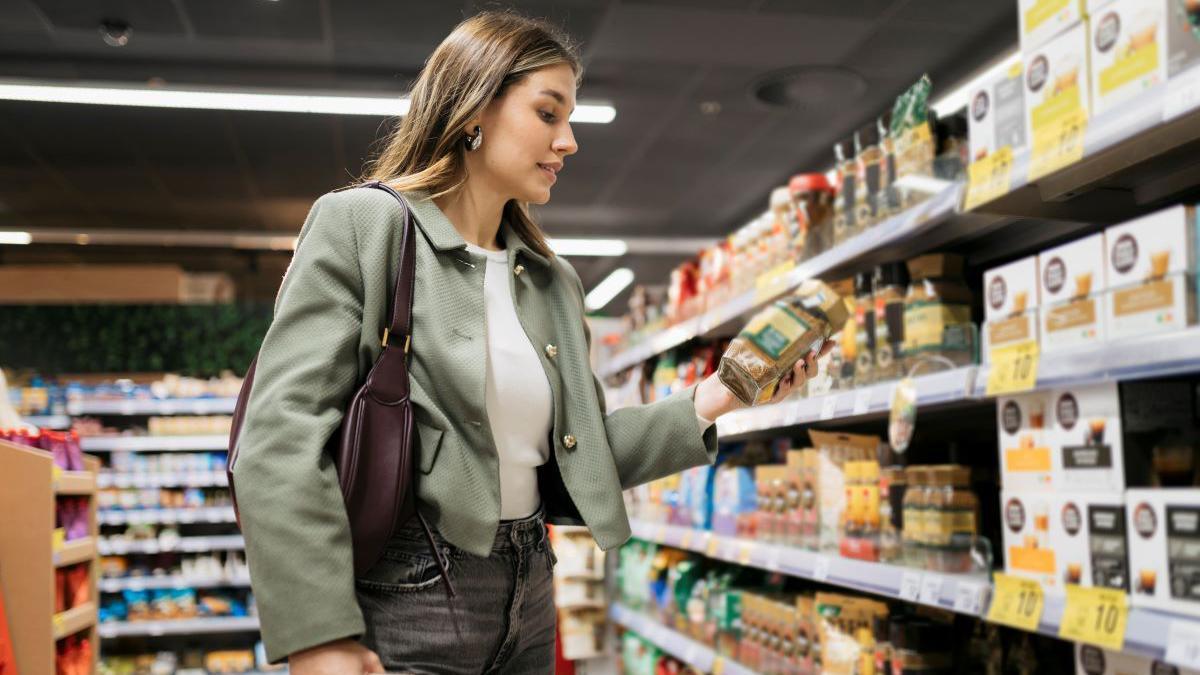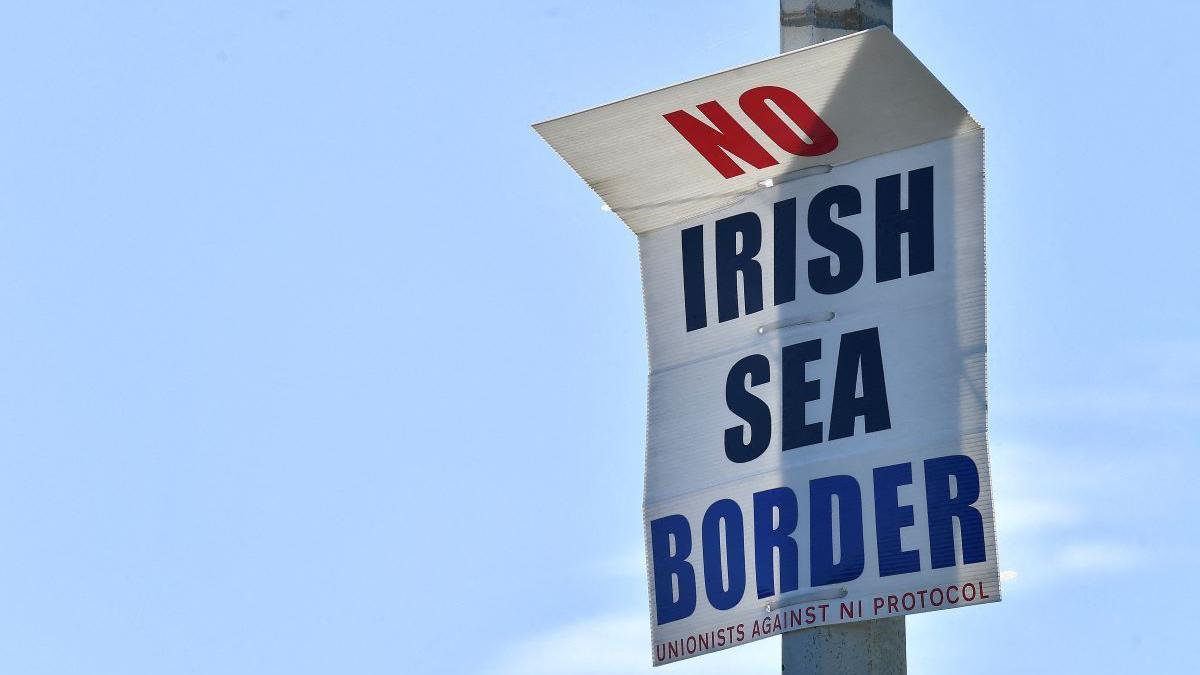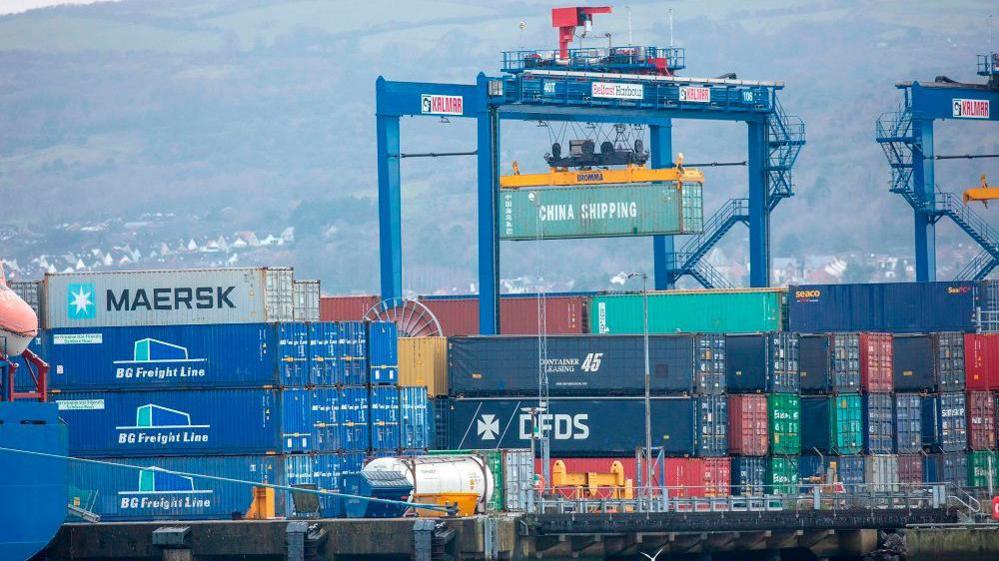Sea border for food and agricultural products 'in place until 2027'

The sea border refers to post-Brexit checks and controls on products moving from Great Britain to Northern Ireland
- Published
The Irish Sea border for food and agricultural products will not be dismantled until 2027, a UK government minister has confirmed.
The sea border refers to post-Brexit checks and controls on products moving from Great Britain to Northern Ireland.
In May this year the UK and EU agreed an outline deal which, when implemented, will mean no physical checks on GB food products at NI ports.
The implementation timetable was unclear but EU relations minister Nick Thomas-Symonds gave an update in a speech on Wednesday and said further negotiations with the EU will happen in the autumn with a view to UK legislation in 2026 and implementation in 2027.
The outline deal is based on the UK agreeing that it will align with EU rules on agri-food which will mean Northern Ireland and Great Britain return to following the same set of rules.
That will mean food being shipped from Great Britain to Northern Ireland will no longer need the paperwork and checks which have been in place since 2021.
The deal will also cover the trade in horticultural products like seeds and garden plants.
NI Chamber chief executive Suzanne Wylie said the proposed deal "represents a significant step forward in addressing trade barriers".
Ms Wylie said NI Chamber supports the "ambition", but added the government needs to "move quickly".
"The time period proposed presents challenges for businesses adapting to recent implementation phases of the Windsor Framework. We urge the UK government to provide immediate, practical support to agri-food supply chains navigating these challenges today - not just in anticipation of future agreements," she said.
Ms Wylie also said NI Chamber is renewing calls on the government to "go further for Northern Ireland's businesses".
"We want to see a comprehensive review, with the EU, of the criteria used to determine whether goods coming into Northern Ireland are 'at risk' of entering the EU," she said.

A poster pictured at the port in Larne, Northern Ireland in June 2022
Northern Ireland's current trading arrangement came about as the result of a Brexit deal between the EU and UK in 2019, which was revised in 2023, and is now known as the Windsor Framework.
They agreed that the most practical way to keep the border open between Northern Ireland and the Republic of Ireland was for Northern Ireland to follow many EU laws on the regulation of goods.
However this means that goods coming from the rest of the UK into Northern Ireland face checks and controls to ensure they meet EU rules.
This arrangement has become known as the Irish Sea border.
It has had a particular impact on the food industry as Northern Ireland supermarkets are still largely supplied from distribution centres in England and Scotland.
New border control posts have been built at NI ports to facilitate checks on food products arriving from GB.
The new deal should substantially reduce the impact of the sea border for food and plants as there will be no regulatory differences between Northern Ireland and Great Britain.
However it will not remove the need for customs paperwork.
Related topics
- Published24 May

- Published22 May
